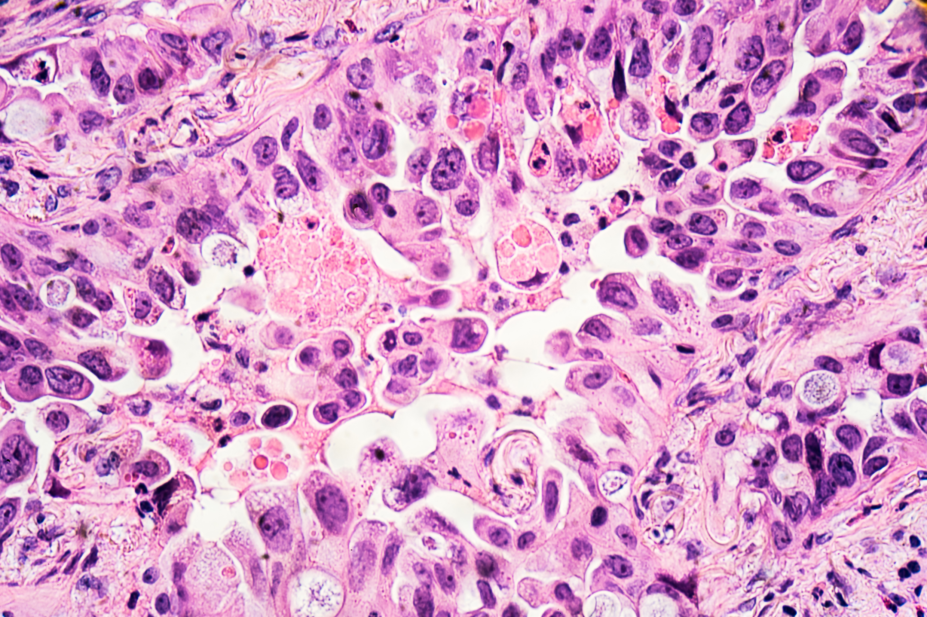
Shutterstock.com
The NHS is to become the first health service in Europe to offer sotorasib, a tumour-agnostic drug, to patients in England with non-small cell lung cancer.
The drug targets a mutation on the KRAS gene, binding to it and making it inactive, stopping cell division and cancer growth.
On 10 September 2021, the NHS said that the approval of sotorasib is the culmination of “a 40-year search” for a treatment targeting the KRAS mutation, which is implicated in some pancreatic and colon cancers as well as lung cancer.
The NHS said sotorasib is “the first treatment of its kind” and could “represent a major breakthrough in treatments” for these, and some other, cancers.
Under an early-access deal agreed with the National Institute for Health and Care Excellence (NICE) and Amgen, the drug’s manufacturer, NHS England will begin providing the drug “within weeks”, with around 600 lung cancer patients per year to be offered the treatment initially.
Peter Johnson, national clinical director for cancer at the NHS, said the NHS was “committed to saving more lives from cancer through better diagnosis and treatment, with molecular testing through our genomics programme increasingly important for selecting the best options for patients”.
Professor Charles Swanton, chief clinician at Cancer Research UK, described sotorasib as “one of the most exciting breakthroughs in lung cancer treatment in 20 years, targeting a cancer gene that was previously untargetable and built on decades of laboratory research that’s unravelled cancer’s inner workings”.
“This medicine expands our list of effective precision therapies in lung cancer that are helping to improve survival for patients with limited options.”
Meindert Boysen, deputy chief executive and director of the Centre for Health Technology Evaluation at NICE, said in a statement to The Pharmaceutical Journal: “We are pleased to have been able to work with Amgen, the MHRA [Medicines and Healthcare products Regulatory Agency] and NHS England to make sotorasib available for people with this type of lung cancer.
“Collaboration is critical to our role in bringing innovative treatments to patients as rapidly as possible, and it is our hope that this advanced access will allow hundreds of people to benefit from the treatment ahead of our final appraisal.”
The first tumour-agnostic drug to be made available on the NHS was larotrectinib, which was approved by NICE in April 2020 for use on the Cancer Drugs Fund, having initially been rejected as not being cost-effective.
READ MORE: Going against type: the new class of cancer therapies targeting mutations rather than tissues


